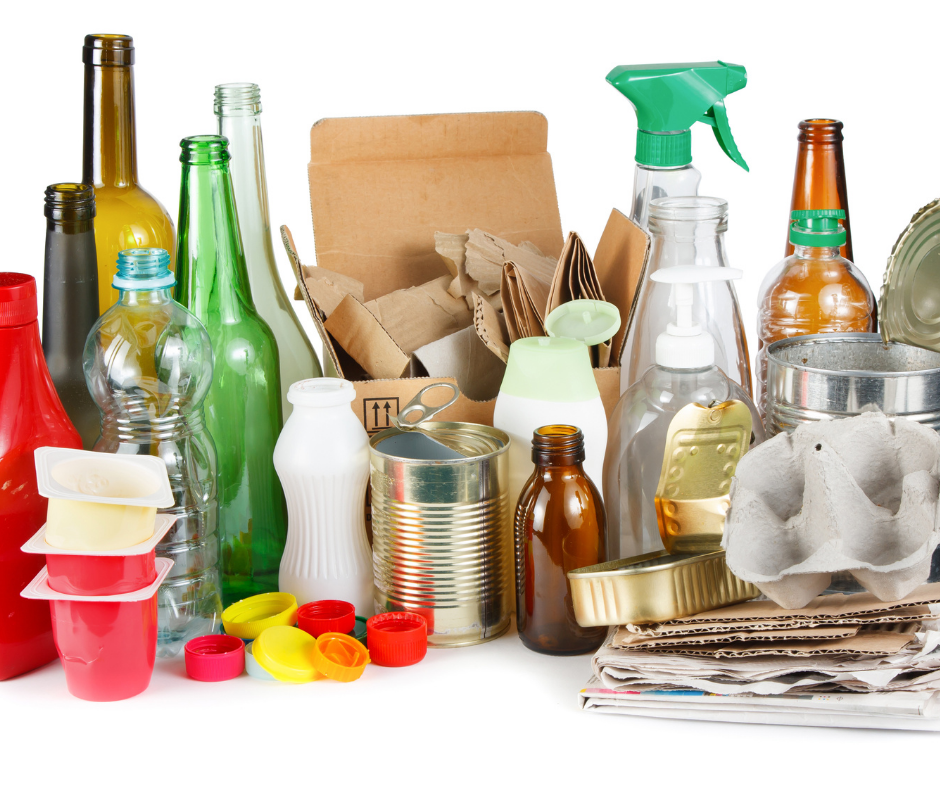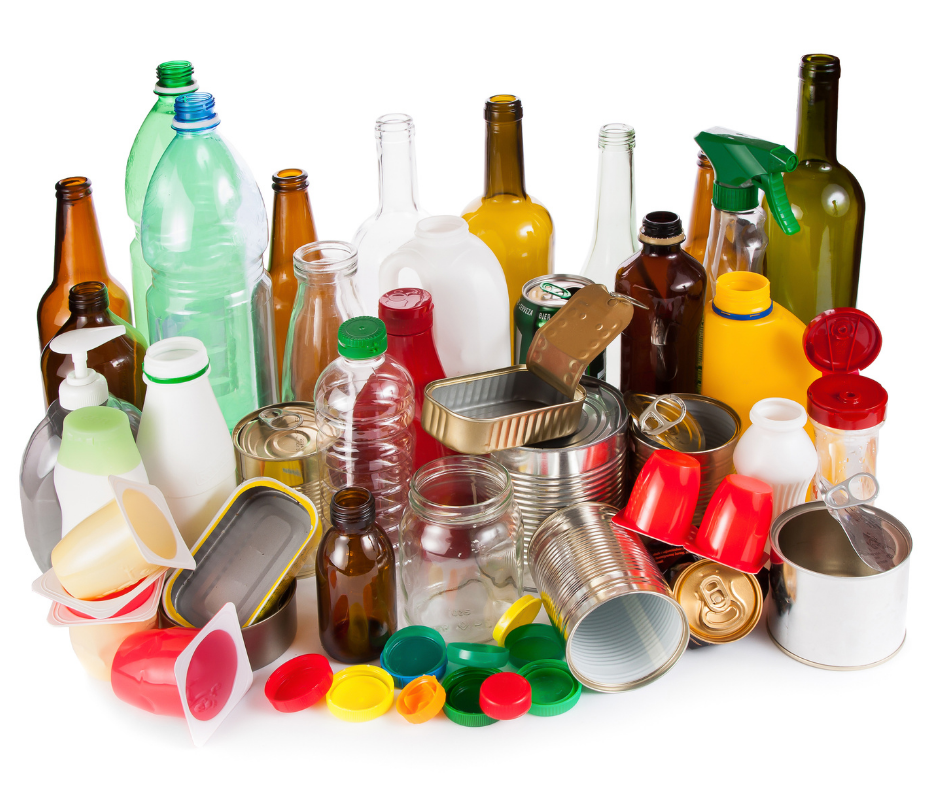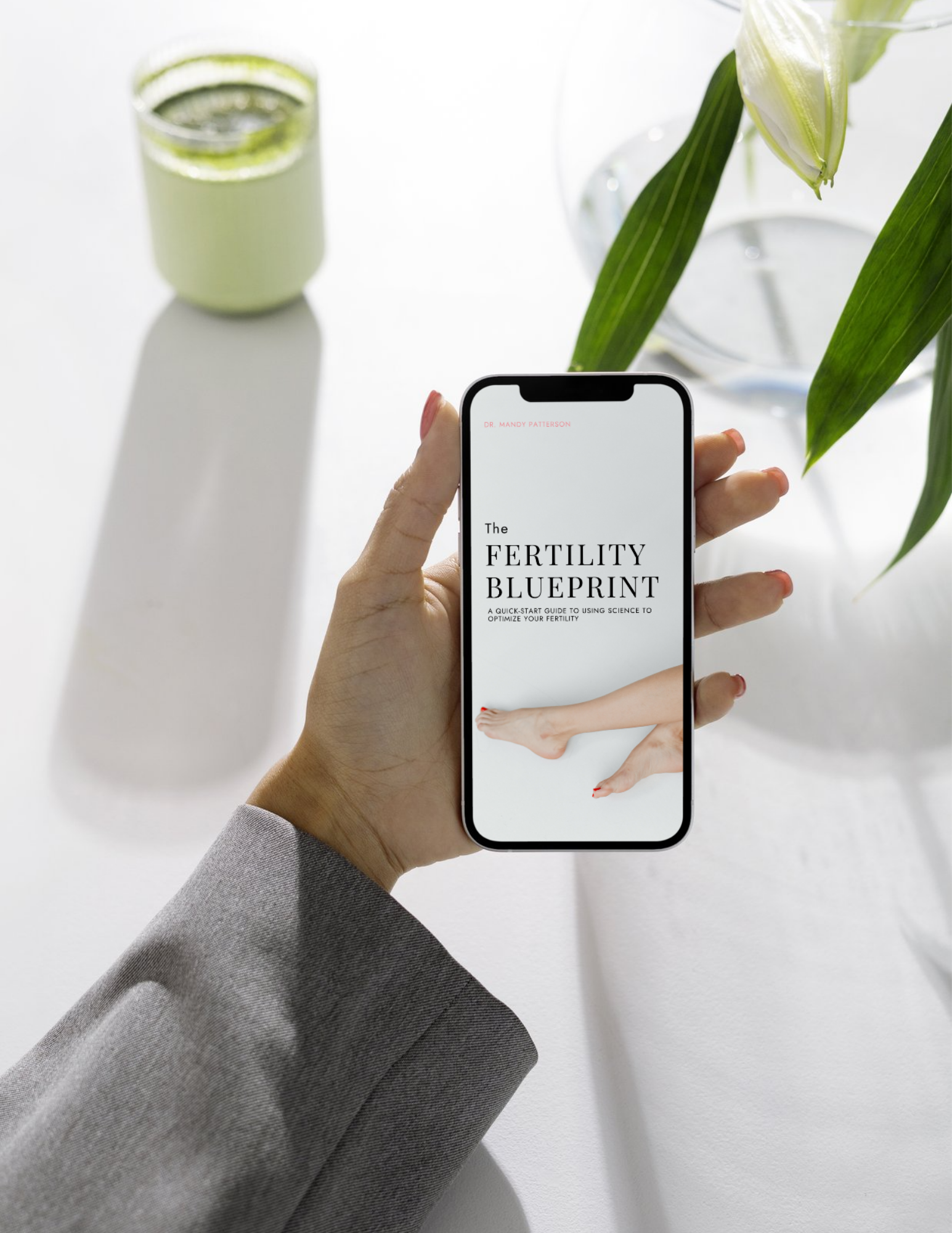Plastics, pollution, pesticides, and personal care products. This list of seemingly unrelated items all have one thing in common. They are endocrine disruptors. That means they contain chemicals that can disrupt your endocrine system, a.k.a. your hormones! Unless you plan on moving to a remote island in the Caribbean (hey, that’s not such a bad idea actually), there is no way to completely avoid these nasty chemicals.
The good news?
There are ways to reduce your exposure and avoid MOST endocrine disruptors. Keep reading to learn how!
The Endocrine System
Let’s start with the endocrine system. It’s a series of glands that secrete hormones which the body uses for various functions. For example, you may have heard of the pituitary gland. It’s a small gland near your brain. Well, it’s part of the endocrine system. The endocrine system controls things like metabolism, growth, sexual maturation, reproduction, blood pressure and more!
Yeah, it’s in charge of a lot, which is why you don’t want any “disruptors” getting in the way of things.
The thing about the endocrine system is that there are hormone receptors all throughout your body. That means targeting one specific hormone to try and fix a particular issue oftentimes has multiple side effects. It also means that a tiny amount of hormones can have big consequences on your body’s functions.
What are Endocrine Disruptors
Endocrine disruptors are not normally members of the endocrine system. They are not naturally occurring hormones. Actually, endocrine disruptors are hormone-mimicking chemicals that find their way into your body. They mimic, inhibit, or interfere with your body’s sensitivity to hormones. This causes adverse developmental, reproductive, neurological, and immune effects in your body.
They are mostly man-made and found in various products. Unfortunately, endocrine disruptors are quite common and pervasive in our society today.
Where to Find Endocrine Disruptors
Like I mentioned above, endocrine disruptors can be found in plastics, pesticides, pollution, and personal care products. With the increase in synthetic chemicals in our society, endocrine disruptors are showing up everywhere. One of the most pervasive is Bisphenol A (BPA). In fact, 93% of people have BPA in their body according to the EWG.
A few of the common, everyday items that contain endocrine disruptors include: plastic bottles, metal food cans, medical devices, detergents, flame retardants, plastic toys, cosmetics, and cleaning supplies. They are also found in many of the pesticides used on the food you eat. That’s why it’s important to choose organic whenever possible!
Here is a list of chemicals that are categorized as endocrine disruptors and where they are used.
- Bisphenol A (BPA) — found in many plastic products including food storage containers and toys.
- Dioxins — a byproduct in herbicide production and paper bleaching, are released into the environment during waste burning and wildfires.
- Perchlorate — a by-product of aerospace, weapon, and pharmaceutical industries found in drinking water and fireworks.
- Perfluoroalkyl and Polyfluoroalkyl Substances (PFAS) — used as firefighting foams and in non-stick pan, paper, and textile coatings.
- Phthalates — used to make plastics more flexible. They are found in some food packaging, cosmetics, children’s toys, and medical devices.
- Phytoestrogens — naturally occurring substances in plants that have hormone-like activity. Common in soy products, like tofu or soy milk.
- Polybrominated diphenyl ethers (PBDE) — used to make flame retardants for household products like carpets.
- Polychlorinated biphenyls (PCB) — used to make electrical equipment like transformers, and in hydraulic fluids, heat transfer fluids, lubricants, and plasticizers.
- Triclosan — found in some anti-microbial and personal care products, like liquid body wash.
Endocrine Disruptors and your Health
You’re probably wondering how if these chemicals are used in nearly everything, why are they so bad for us? Surely those in charge of creating these products wouldn’t include harmful chemicals. Unfortunately, that’s not the case. Endocrine disruptors are bad for your health and here’s why…
For one, a huge part of your reproductive health is based on your hormones. An imbalance of thyroid, cortisol, progesterone, and estrogen could affect your ability to conceive. (Already pregnant or trying to be? Check out my post “Five Holistic Tips for a Healthy Pregnancy.”) If your hormones are unbalanced because of endocrine disruptor exposure, you may have longer than normal periods or be struggling to get pregnant and stay pregnant.
RELATED: FIVE HOLISTIC TIPS FOR A HEALTHY PREGNANCY
Endocrine disruptors also play a role in obesity. They can disrupt the regulation of energy metabolism and the creation of fat cells. Hormone disrupting chemicals have been linked with schizophrenia, depression, hyperactivity, and autism in children.
Essentially, everything your hormones handle, endocrine disruptors interfere with. I’m talking about sleep, growth and development, tissue function, blood sugar regulation, and even brain function!
How to Avoid Endocrine Disruptors
Yes, endocrine disruptors do appear to be in literally everything. But, that’s not cause for despair. There are ways to avoid these nasty chemicals!
Here are several tips for avoiding endocrine disruptors.
- Dust and vacuum often. Flame retardant chemicals escape from your electronics, furniture, and baby products and collect in your household dust.
- Avoid anything with “fragrance.” Phthalates are a common ingredient in many fragrances. Opt for essential oils instead.
- Switch to non-toxic cleaning products.
- Think twice about plastics. Try to use glass containers for food storage instead.
- Use a water filter to avoid endocrine disruptors in water sources.
- Buy organic food when you can.
Work With a Holistic Health Coach
As a certified holistic health coach and practitioner of functional medicine I can help you identify ways to avoid endocrine disruptors and live a life full of joy and good health. We take things one step at a time and look for ways to optimize your health. My goal is to find the root cause of your dis-ease and heal you from the bottom out!
Interested in working together? You can contact me here!
Mandy Patterson



















